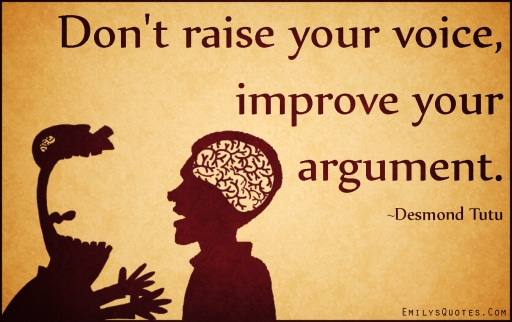Teaching Debating Skills

I, along with many others, have been impressed with how articulate the Parkland students have been regarding their school shooting and gun laws.
When students at Marjory Stoneman Douglas High debated gun control in class last November, they never imagined they were preparing to lead a national discussion on how to prevent school shootings. As the debate team filled Google docs with research on state laws, brainstormed arguments for and against universal background checks and wrote speeches, they were amassing information that would later help them formulate arguments on national TV, in face-to-face meetings with Florida legislators and at vigils for their murdered classmates.
What really explains the students’ poise, said Broward Schools Superintendent Robert Runcie, is the school district’s system-wide debate program that teaches extemporaneous speaking from an early age. Every public high school and middle school in the county has a debate program, along with more than two dozen elementary schools. It’s one of the largest debate programs in the country — and, amid the heartbreak, it has helped Broward students position themselves on the front lines of the #NeverAgain movement. (http://www.miamiherald.com/news/local/education/article201678544.html)
I used to do debates in my face-to-face teacher education courses; and they were always a great success – proved to be a valuable instructional tool. It slipped my mind when I moved into online college teaching. All of the press regarding the Parkland students and their debate experiences reminded me of the power and benefits of debate.
In general, the benefits of debate include:
- Gaining broad, multi-faceted knowledge cutting across several disciplines outside the learner’s normal academic subjects.
- Increasing learners’ confidence, poise, and self-esteem.
- Providing an engaging, active, learner-centered activity.
- Improving rigorous higher order and critical thinking skills.
- Enhancing the ability to structure and organize thoughts.
- Enhancing learners’ analytical, research and note-taking kills
- Improving learners’ ability to form balanced, informed arguments and to use reasoning and evidence.
- Developing effective speech composition and delivery.
- Encouraging teamwork.
(http://www.qatardebate.org/debate-and-debating/benefits-of-debating)
Because of my interest in the Parkland students and my research about the benefits of debating, I decided to have my gifted students, grades 5 and 6, do a debate on teachers being armed in school. The steps for their debate were as follows:
- Decide what side of the issue they wanted to be on. I stressed that sometimes being on the side you don’t necessary agree with can be a good exercise, especially for understanding the other side of the issue.
- Explore the issue through online research.
- Meet with team members to decide what angle of the issue each member would take.
- Do online research to find hard evidence to support each of their issues and angles.
- Meet with their groups to review their arguments and go over their presentations.
- Learn about the structure of the debate
- Each side presents their argument – all members of a side present their argument (decided by a coin flip) and then the other side does so.
- While one side is presenting their argument, learners on the other side write out questions to ask during the rebuttal round.
- In the rebuttal round, questions are asked of the opposing team.
- Review the evaluation criteria – on a scale from 1 to 5 with 5 being the highest. Each learner is evaluated by a panel of judges (some other students and me)
- How well did the person articulate the argument?
- How well did the person use references to support his or her argument?
- How well did the person ask questions of the other team?
- How well did the person answer questions from the other team?
- Do the debate.
- Get the judges’ feedback. Add together their scores for each individual and then add these as a team. The team with the highest score wins.
Highlights
Reflection
Although these students did some mini-debates in their regular classroom, it was obvious they had some problems with a more formal debate such as this. If I was to do this over or in the future, I would:
- Have each learner share his or her research with me and we would check the reliability of the sources together.
- Ask the learners to practice what they are going to say with their teammates several times.
- Have the learners watch example debates online and prepare questions for the speakers as if they were there.
- Ask learners to present their arguments to their family and/or friends to get feedback from them.
More Resources About Debates in the Classroom

I agree that you should have a ton of research done on the topic beforehand. My son has a school debate and isn’t really good in front of crowds. I’ll have to get him a speech tutor to help form his points of view.
Tex Hooper
May 5, 2021 at 2:21 am